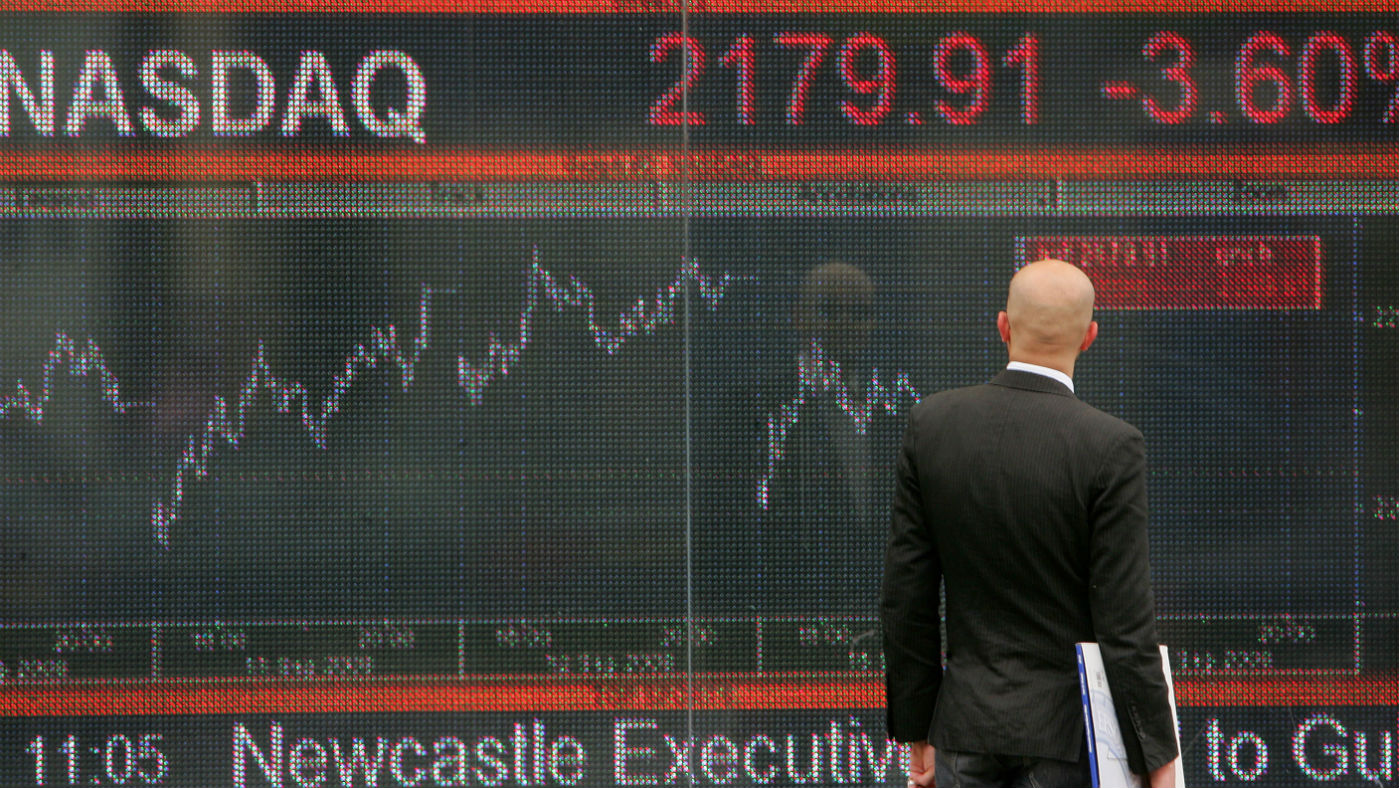Would a Russian debt default trigger global financial crisis?
Aftermath of Russia’s last default ‘looms large’

A free daily email with the biggest news stories of the day – and the best features from TheWeek.com
You are now subscribed
Your newsletter sign-up was successful
Russia is spiralling towards a multibillion-dollar debt default as Western sanctions cripple the superpower’s economy, analysts have warned.
Moscow is due to make $117m (£90m) in interest payments today to investors holding $2-denominated bonds. But with freezes imposed on Russia’s foreign currency reserves in response to the Ukraine invasion, credit rating agencies have predicted that a debt default is “imminent”.
What and who does Russia owe?
The Week
Escape your echo chamber. Get the facts behind the news, plus analysis from multiple perspectives.

Sign up for The Week's Free Newsletters
From our morning news briefing to a weekly Good News Newsletter, get the best of The Week delivered directly to your inbox.
From our morning news briefing to a weekly Good News Newsletter, get the best of The Week delivered directly to your inbox.
Vladimir Putin’s “government – and firms such as Gazprom, Lukoil and Sberbank – owe about $150bn to overseas investors”, explained the BBC’s business reporter Tim Bowler.
But as a result of Western sanctions, Russia is unable to access about $630bn (£470bn) of foreign currency reserves.
The government could use dollars held in Russia, rather than overseas, to pay the debt now due, but this would simply delay the problem.
Russia’s Foreign Ministry has indicated previously that Moscow would make payments to international investors in roubles if it were unable to pay in dollars or euros.
A free daily email with the biggest news stories of the day – and the best features from TheWeek.com
But neither of the two dollar-denominated bonds due to be paid today “allow for any other currency to be used, so this would likely trigger a default”, said Bowler.
Last week, World Bank chief economist Carmen Reinhart told Reuters that Russia was “mighty close” to defaulting on debt repayments.
Credit ratings agency Moody’s also said it expected Russia to default, and warned that investors in Russia could lose between 35% and 65% of their money.
What is the potential global impact?
Investors “so far aren’t panicking over any potential hit to global financial markets”, said MarketWatch. William Jackson, chief emerging markets economist at Capital Economics, said that “while a default would be symbolic, it seems unlikely that it will have significant ramifications, both in Russia and elsewhere”.
Others have pointed out that even if Russia fails to make the payment in dollars, it would be in technical default only after a 30-day grace period, by which time a settlement for the Ukraine conflict may have been negotiated.
Daniel Lenz, head of euro rates strategy at DK Bank in Frankfurt, Germany, told The Independent that “a Russian default would no longer be any great surprise for the market as a whole, adding that “if there were going to be big shock waves, you would see that already”.
The International Monetary Fund’s managing director, Kristalina Georgieva, agreed, telling CNBC that a wider financial crisis in the event of a Russian default was unlikely for now.
However, Jackson has noted that a sovereign default could be a prologue to defaults by Russia’s corporates, whose external debts are much larger than those of the government.
The FT said the aftermath of Russia’s last default in 1998 “looms large”. That default “followed on the heels of the Asian financial crisis and sent shockwaves through financial markets,” it said.
While acknowledging that analysts are “relatively confident” a rerun of 1998 can be avoided, “the history of finance is littered with examples of how unexpected second-order effects from widely anticipated events still ended up causing broader calamities”.
-
 The ‘ravenous’ demand for Cornish minerals
The ‘ravenous’ demand for Cornish mineralsUnder the Radar Growing need for critical minerals to power tech has intensified ‘appetite’ for lithium, which could be a ‘huge boon’ for local economy
-
 Why are election experts taking Trump’s midterm threats seriously?
Why are election experts taking Trump’s midterm threats seriously?IN THE SPOTLIGHT As the president muses about polling place deployments and a centralized electoral system aimed at one-party control, lawmakers are taking this administration at its word
-
 ‘Restaurateurs have become millionaires’
‘Restaurateurs have become millionaires’Instant Opinion Opinion, comment and editorials of the day
-
 Will increasing tensions with Iran boil over into war?
Will increasing tensions with Iran boil over into war?Today’s Big Question President Donald Trump has recently been threatening the country
-
 Putin’s shadow war
Putin’s shadow warFeature The Kremlin is waging a campaign of sabotage and subversion against Ukraine’s allies in the West
-
 Epstein files topple law CEO, roil UK government
Epstein files topple law CEO, roil UK governmentSpeed Read Peter Mandelson, Britain’s former ambassador to the US, is caught up in the scandal
-
 Iran and US prepare to meet after skirmishes
Iran and US prepare to meet after skirmishesSpeed Read The incident comes amid heightened tensions in the Middle East
-
 Israel retrieves final hostage’s body from Gaza
Israel retrieves final hostage’s body from GazaSpeed Read The 24-year-old police officer was killed during the initial Hamas attack
-
 China’s Xi targets top general in growing purge
China’s Xi targets top general in growing purgeSpeed Read Zhang Youxia is being investigated over ‘grave violations’ of the law
-
 Panama and Canada are negotiating over a crucial copper mine
Panama and Canada are negotiating over a crucial copper mineIn the Spotlight Panama is set to make a final decision on the mine this summer
-
 The rise of the spymaster: a ‘tectonic shift’ in Ukraine’s politics
The rise of the spymaster: a ‘tectonic shift’ in Ukraine’s politicsIn the Spotlight President Zelenskyy’s new chief of staff, former head of military intelligence Kyrylo Budanov, is widely viewed as a potential successor